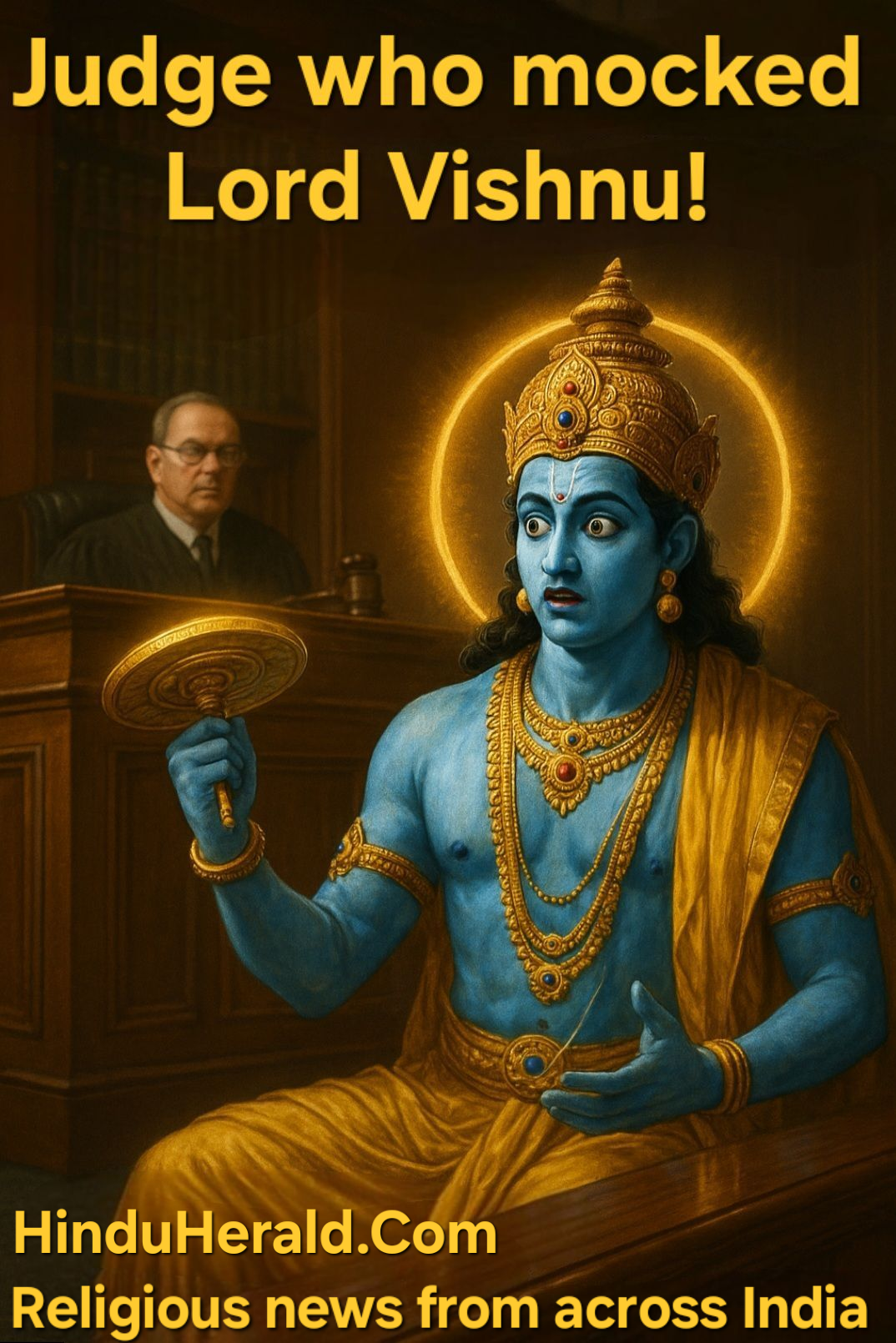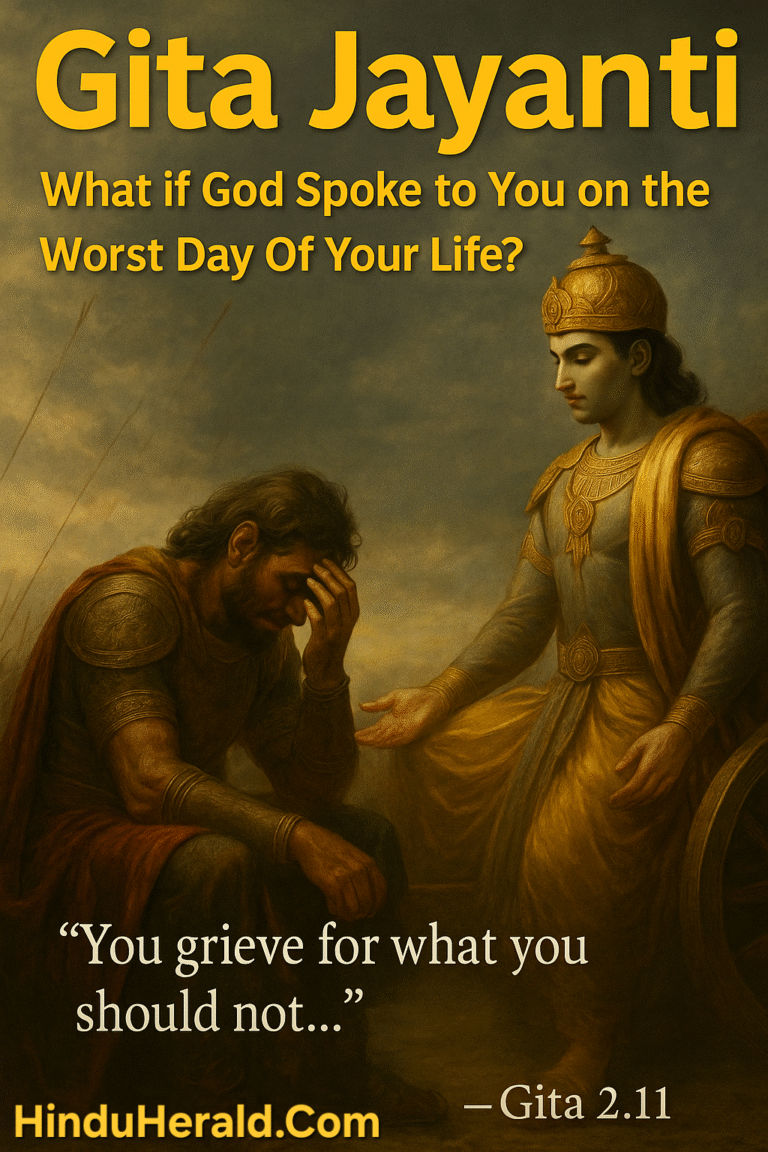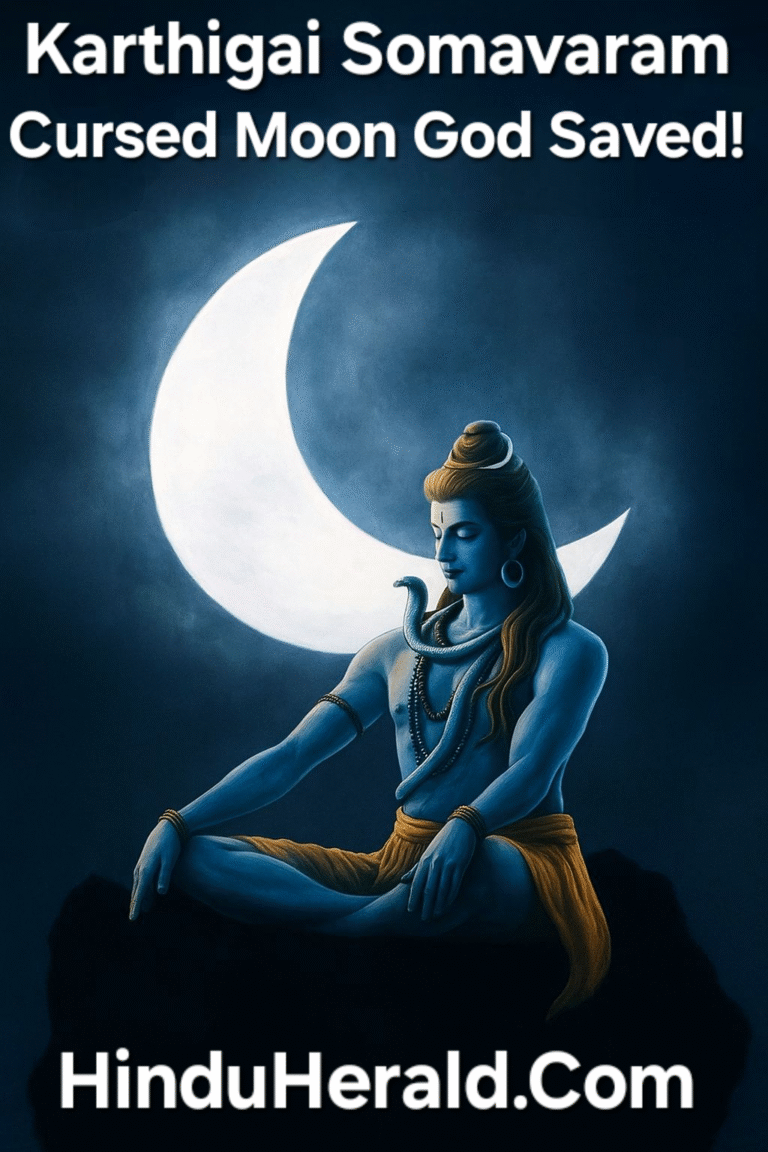
Should Judge BR Gavai, who mocked Lord Vishnu, rule on Hindu cases?
By Hindu Herald Staff
A controversy has shaken India’s Supreme Court after Judge BR Gavai, long associated with Ambedkarite Buddhism, made a remark that many Hindus saw as a direct slight to Lord Vishnu.
Faith and Background
Justice BR Gavai follows Navayana Buddhism—also called Ambedkarite Buddhism—founded by Dr. B.R. Ambedkar in 1956. It began when large numbers of Dalit Hindus, rejecting caste discrimination, embraced a modern, egalitarian interpretation of the Buddha’s teachings. Every follower takes the 22 vows, which renounce the worship of Hindu deities such as Vishnu, Shiva, and Devi, defining the faith’s clear separation from mainstream Hindu practice.
The Courtroom Remark
On September 16 2025, during a hearing on whether a damaged seven-foot murti of Lord Vishnu at the ancient Javari Temple in Madhya Pradesh should be repaired, Justice BR Gavai dismissed the plea as a “publicity-interest litigation.”
When the petitioner pressed on, he said:
“Go and ask the deity itself to do something now. You say you are a staunch devotee of Lord Vishnu. So go and pray now.”
To millions of Hindus, that sounded less like judicial restraint and more like derision. The words rippled through temples, WhatsApp groups, and television panels alike.
Judge BR Gavai mocking Lord Vishnu in court
Echoes of a Sacred Story
Many devotees drew a parallel with the legend of Hiranyakashipu mocking his son Prahlad for his devotion to Vishnu. “If your God is everywhere,” the demon king sneered, “let Him appear from this pillar.” From that pillar emerged Narasimha — half-man, half-lion — to end the mockery once and for all. For believers, the echo was unmistakable: ridicule of the Divine has always invited its own answer.
TV scene of Hiranyakashipu mockingly telling Prahlad to let Vishnu come out of the pillar & do something
Public Outcry
Three weeks later, on October 6, senior lawyer Rakesh Kishore (71) hurled a shoe toward Justice BR Gavai inside the court, shouting that he had insulted Lord Vishnu. The shoe missed, but the gesture summed up the anger outside.
Shoe thrown at Judge BR Gavai
Soon after, Bengaluru Cyber Crime police arrested five people for social-media comments critical of BR Gavai, invoking contempt and defamation provisions.
5 arrested for derogatory Facebook messages on BR Gavai
The debate quickly split the country. Was the protest an attack on judicial dignity—or a cry against perceived irreverence?
What the 22 Vows Say
Followers of Navayana Buddhism like Judge BR Gavai, are bound by Ambedkar’s 22 Vows. The first declares:
“I shall have no faith in Brahma, Vishnu and Maheshwara, and I shall not worship them.”
The nineteenth calls Hinduism “harmful to humanity.”
Such statements, while central to Ambedkarite identity, have renewed calls for judges of any faith that explicitly rejects Hindu deities to recuse themselves from temple-related cases.
Full text of all 22 vows of Dalit Buddhists
- I shall have no faith in Brahma, Vishnu and Maheshwara, and I shall not worship them.
- I shall have no faith in Rama and Krishna, who are believed to be incarnations of God, and I shall not worship them.
- I shall have no faith in Gauri, Ganapati and other gods and goddesses of Hindus, and I shall not worship them.
- I do not believe in the incarnation of God.
- I do not and shall not believe that Lord Buddha was the incarnation of Vishnu. I believe this to be sheer madness and false propaganda.
- I shall not perform Shraddha and I shall not give Pind.
- I shall not act in a manner violating the principles and teachings of the Buddha.
- I shall not allow ceremonies to be performed by Brahmins.
- I shall believe in the equality of man.
- I shall endeavour to establish equality.
- I shall follow the Noble Eightfold Path of the Buddha.
- I shall follow the Ten Paramitas prescribed by the Buddha.
- I shall have compassion and loving-kindness for all living beings and protect them.
- I shall not steal.
- I will not commit adultery.
- I will not speak lies.
- I shall not take intoxicants like liquor or drugs.
- I shall endeavour to follow the Noble Eightfold Path and practice compassion and loving-kindness in everyday life.
- I renounce Hinduism which is harmful to humanity and impedes its advancement, and adopt Buddhism as my religion.
- I firmly believe the Dhamma of the Buddha is the only true religion.
- I believe that by adopting Buddhism I am having a rebirth.
- I solemnly declare and affirm that I shall hereafter lead my life according to the principles and teachings of the Buddha and his Dhamma.
Conflict-of-Interest Debate
Critics argue that when a judge’s personal vows deny the divinity of Vishnu, presiding over a Vishnu-temple case creates a clear appearance of bias. Supporters reply that India’s Constitution, not any scripture, binds its judges—and that impartiality rests on conduct, not creed.
Still, perception matters. In matters of faith, even neutrality must be seen to exist.
A Verse to Remember
The Bhagavad Gita 9:23 says:
“Even those who worship other gods with faith are actually worshipping Me, though in ignorance.”
For devotees, the line offers comfort: human words can neither wound nor weaken the Divine. Reverence outlasts ridicule.
The Larger Question
The incident at the Supreme Court is no longer just about one damaged murti. It has opened a deeper conversation about faith, impartiality, and respect within India’s highest institution of justice.



